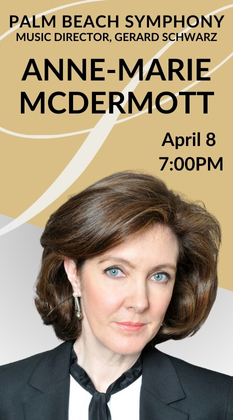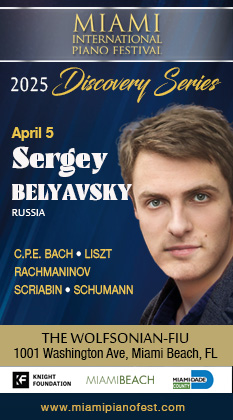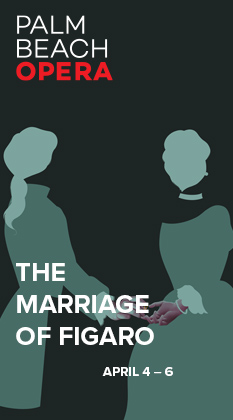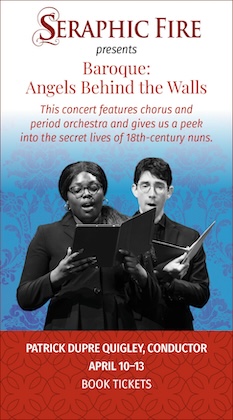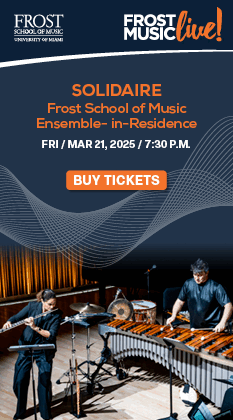New World Symphony to get a New York state of mind this weekend

The contemporary music scene of New York comes to Miami Beach this weekend, as the New World Symphony adds an electric guitar to its roster for a performance of works by three of the city’s most prominent living composers.
Contemporary classical music can be a tough sell, a reality reflected in the $15 general admission price for this concert, as opposed to the $33-$78 tickets for the following week that includes Tchaikovsky’s Symphony No. 6.
But the composers to be heard Saturday at the Lincoln Theatre, have all worked hard to produce works that engage audiences. They are all leaders – and two are founders – of New York’s renowned Bang on a Can collective, which puts on festivals that blend classical, rock, world music and jazz.
Members of Bang on a Can – while giving away nothing in terms of musical complexity or sophistication – have tried from the start to attract a broad audience, having no interest in the sort of contempt for the public displayed by some composers of the 20th century.

David Lang
“I think we went through a period of music in the 60s where the point of a piece of music was for the composer to show how much smarter he was than the audience,” said David Lang, a founder of Bang on a Can, whose Pierced will be performed Saturday. “And there was a lot of good music written. But we live in a different world. This is not that kind of music.
“We all grew up – all three of us – playing in rock bands. We all have an incredible love and commitment to music. But we all get the view from rock bands that music should be about energy and music should be about a community of people experiencing that energy together.”
All three composers will speak at the concert. Lang, who won the 2008 Pulitzer Prize for Music for his work The Little Match Girl, composed Pierced for the violin, piano and percussion ensemble Real Quiet, which will perform it Saturday. He wrote the work as a quasi-concerto, or even an anti-concerto.
Where the standard 19th- entury concerto treated the soloist as a heroic protagonist in opposition to the group, his work lets the solo ensemble and the orchestra each take their own paths, although each needs the other for its harmonies to make sense. “It’s pretty challenging,” Lang said. “There are a lot of notes, a lot of complicated rhythms.”

Michael Gordon
The biggest work on the program is a 30-minute film symphony called Gotham, an exploration of New York City, by Michael Gordon, another co-founder of Bang on a Can. Gordon grew up in Miami Beach. He attended Miami Beach Senior High School and breathed the excitement of contemporary music by poking through the new music bin at Spec’s Records in Coral Gables. “I really liked Led Zeppelin, but Stravinsky was a lot better,” he said. His 94-year old father still lives in Miami Beach, where Gordon said he “drives, shops and plays duplicate bridge.” But Gordon left Miami Beach at 17, now lives in the lower Manhattan neighborhood of Tribeca and composed the work to be heard Saturday for his adopted city.
Gotham is performed along with filmed still and video images of New York by the film maker Bill Morrison, although the music was composed before the film. The three-movement work, which uses an orchestra, piano, electric guitar and electric bass, will accompany images – some vintage, some deteriorated – that show the history, energy and endless change and reinvention of the city.
The opening scene shows sheep grazing in a meadow, then the camera pulls back to reveal the buildings surrounding this scene in Central Park. The middle section portrays the city’s energy. “It has great sequences of fast-moving, big-city shots,” Gordon said. “It has an incredible shot of an elevator at a construction site going down 80 or 90 floors.” The last movement is a canon – “almost like a tornado” – with somber images included ones of the former site of the World Trade Center.
The contemporary experience of jet travel inspired the third work on the program, Evan Ziporyn’s War Chant. He put together two contrasting musical styles, the spiky, modernistic tone of the composer Iannis Xenakis and the genial, relaxed style of the Mexican composer Juan Garcia Esquivel, to bring out the menace and weirdness beneath the surface of air travel, particularly in the post-9/11 world. One style brings out the reassuring chimes, announcements and routine of the passenger cabin, while the other shows the terrifying industrial power that transports the passenger (usually) safely across the sky.
Jeffrey Milarsky, who will conduct the performance, is a contemporary music specialist on the faculty of Juilliard and Columbia University. He described the concert as a rare opportunity to hear three prominent composers at once with full orchestra.

Jeffrey Milarsky
“You’re getting a chance to hear three sort of forces of nature and see what’s been going on in New York for years,” he said. “Bang on a Can is not a specific style. They break the mold of tradition. Their quest for innovation is something you hear. It might be different listening, but it will be exciting listening. I think it’s going to be edgy, exciting and quite beautiful.”
Although the works to be performed Saturday are sophisticated, energetic and decidedly contemporary. they are also meant to be accessible, capable of engaging people who appreciate Bach, Schubert and Prokofiev. “You have to make the audience realize that it’s participating in the decisions about what the future is,” Lang said. “It’s not the future if people don’t like it.”
The New World Symphony performs New York State of Mind: Sounds of the Times on Saturday at 7:30 p.m. at the Lincoln Theatre. Call 305-673-3331 or go to www.nws.edu.
Posted in Uncategorized
Leave a Comment
Tue Nov 3, 2009
at 9:54 pm
No Comments
